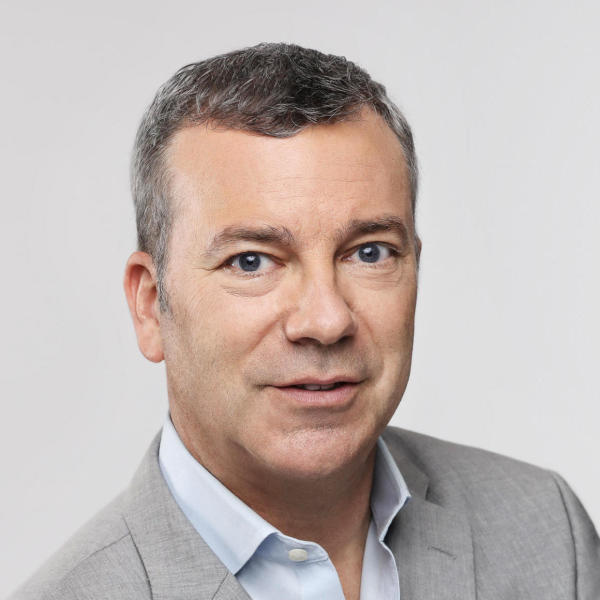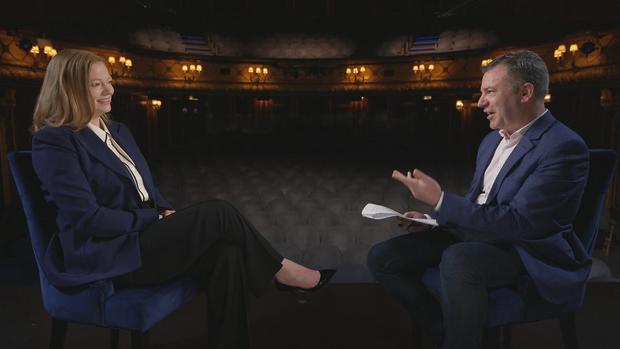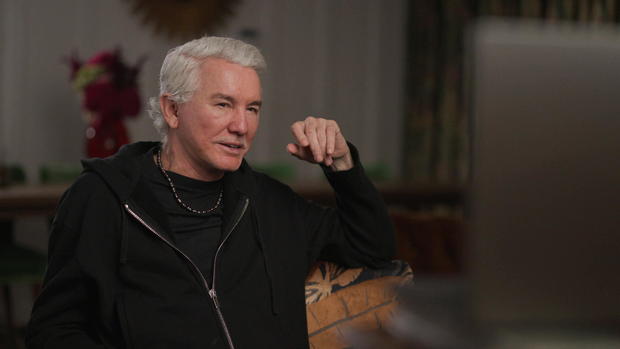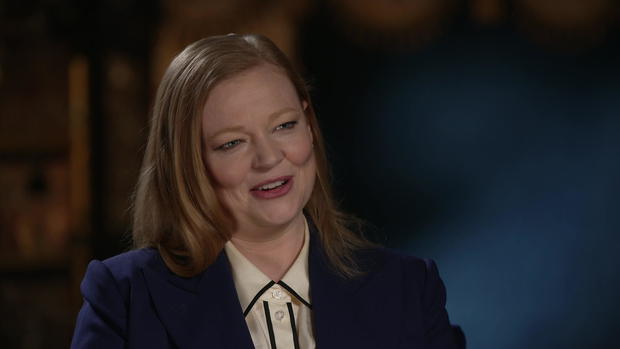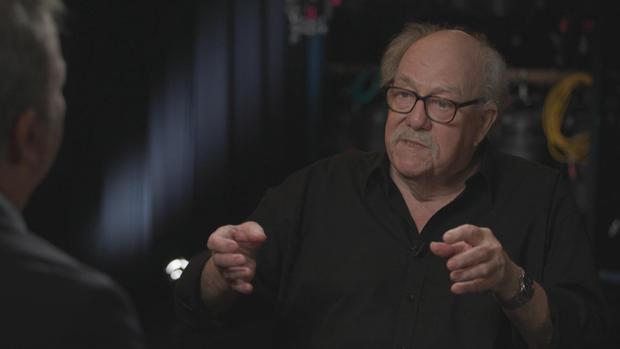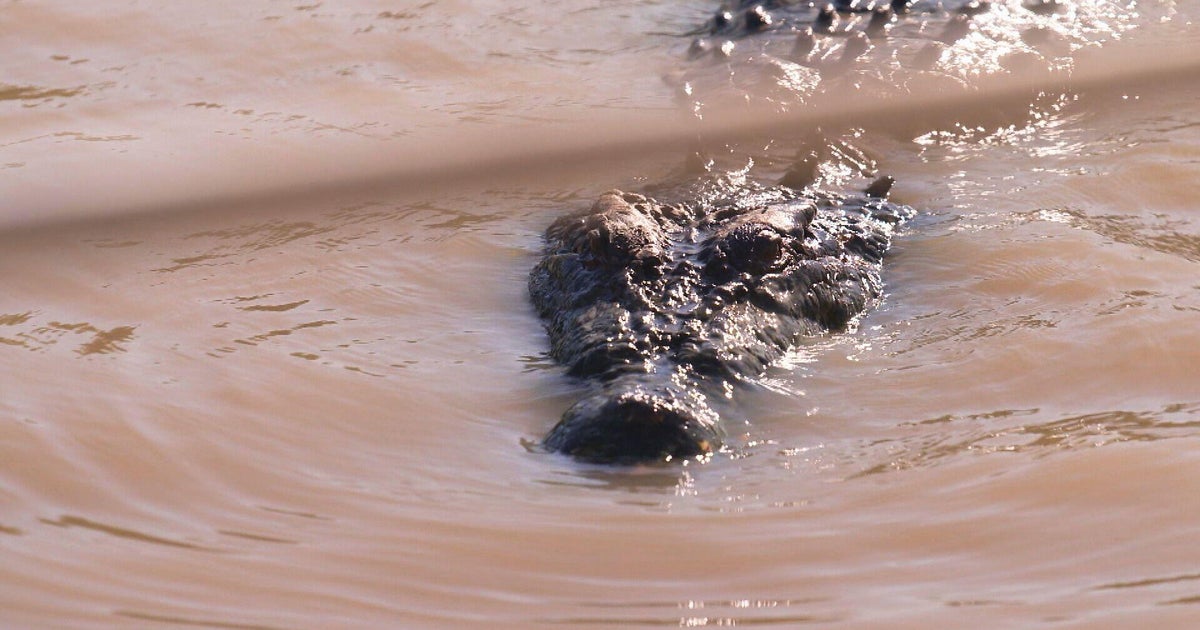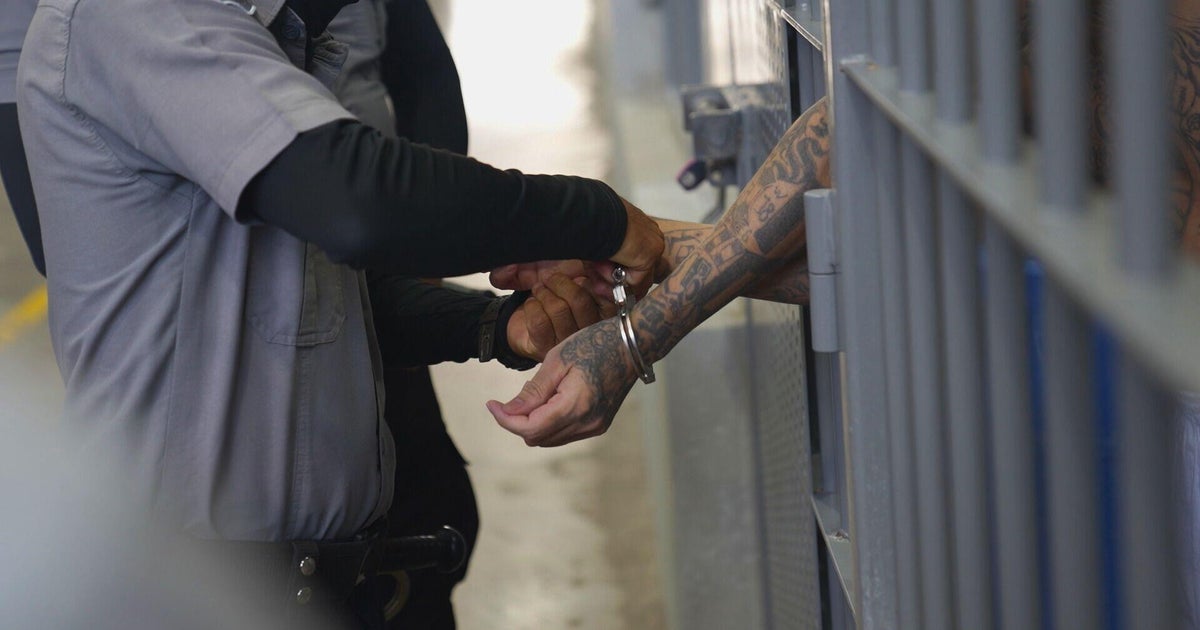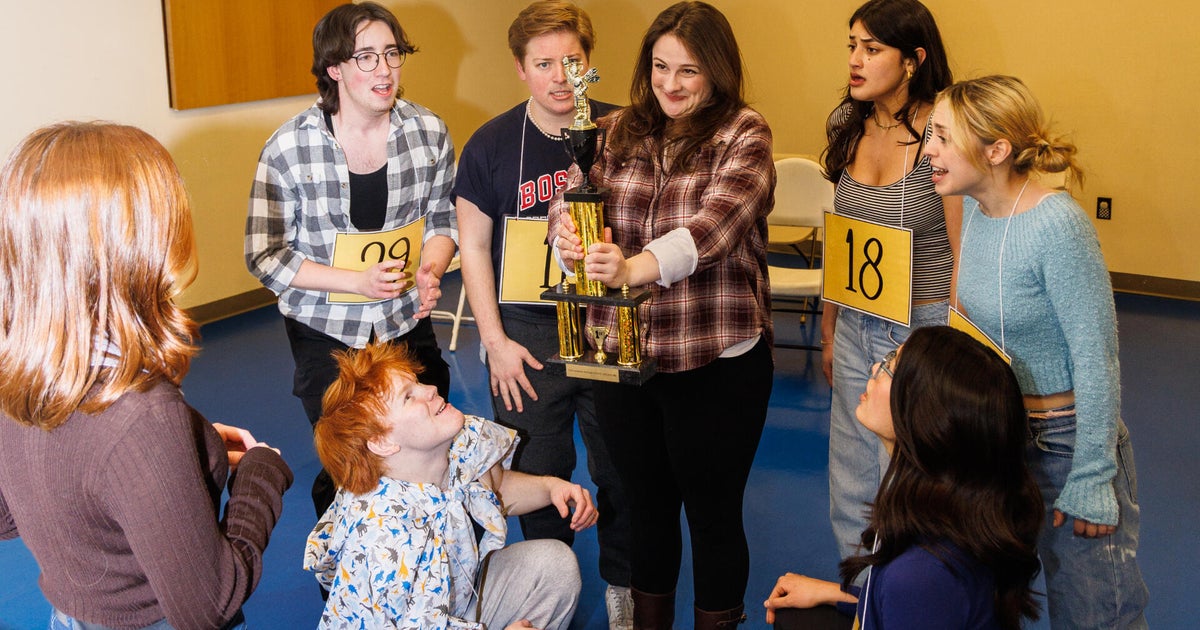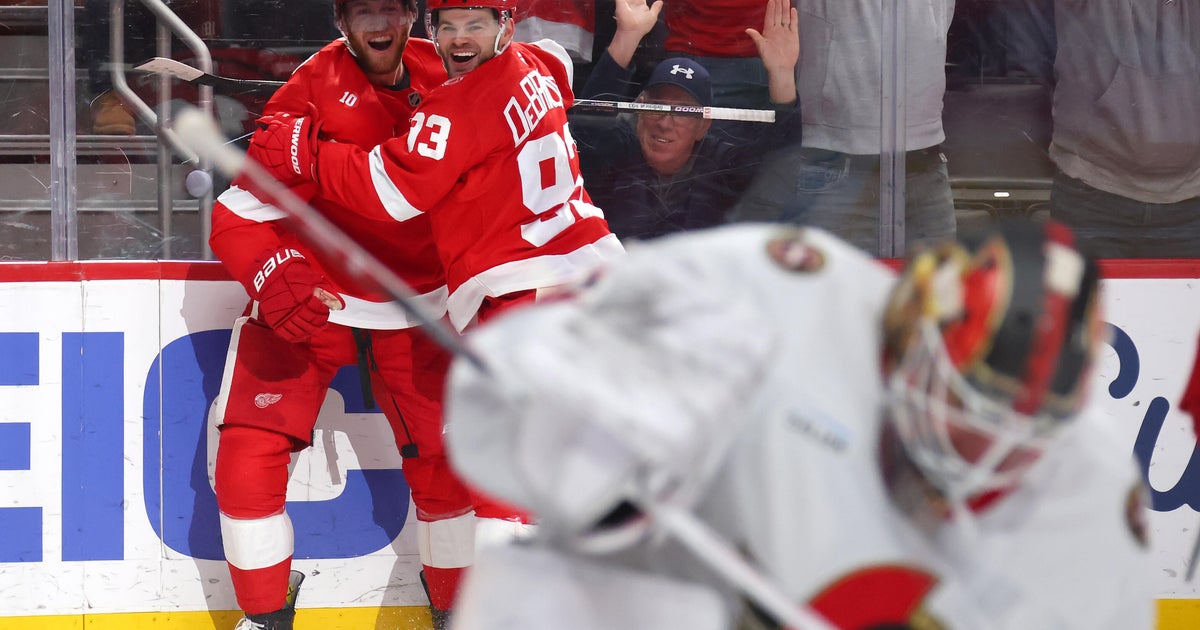A surprising number of Hollywood stars are Australian: how the country pumps out acting talent
This is an updated version of a story first published on Nov. 17, 2024. The original video can be viewed here.
For the record: it's iron ore. But it's easy to make the case that Australia's leading export is… acting talent. How has an island of only 27 million people minted Nicole Kidman, Hugh Jackman, Cate Blanchett, Mel Gibson, Margot Robbie, Chris Hemsworth… we can keep going here… Sarah Snook, Russell Crowe, Heath Ledger, Naomi Watts… to say nothing of so many Oscar-winning directors, designers and crew? We headed to the bottom of the globe—and then, other spots on the globe—to explore the Aussie takeover. And as we first told you last fall, we met stars. We heard theories…and in a quiet Sydney neighborhood—impossibly far and away from Hollywood—we found a place that pumps out talent.
Scene: London's West End, it's Theater District. Sarah Snook is fresh off her Emmy-winning breakthrough role as Shiv Roy… the vicious-yet-vulnerable daughter in the HBO show "Succession."
For her next act, she has upped the degree of difficulty and pivoted from TV to live performance, playing all 26 roles in a staging of Oscar Wilde's "The Picture of Dorian Gray," which came to Broadway and earned Snook a Tony nomination.
Jon Wertheim: It's not unheard of for someone to have a successful run in TV or film and then go do theater. I'm not sure I've seen someone do 26 roles of theater at once. What are you thinking?
Sarah Snook: You know, it's an incredible play, an incredible opportunity to be able to play so many different roles, and so many different characters. And, you know, it's that thing of you come off some of the best writing in the world, what do you do next? Something has to be, you know, out there to challenge you. And this certainly is. Yeah. The challenge.
If it's an unusual bit of career management, it is also on-brand as the kind of daring move you would expect from a modern Australian star.
Jon Wertheim: What is going through your head during this performance, with all of these marks, and roles, and lines, and angles?
Sarah Snook: Nothing. Which is quite nice.
Jon Wertheim: Really?
Sarah Snook: Yeah. The focus required is a kind of a state of meditative flow in a way. Because if I'm sitting there going, "Oh. Am I on my mark? Am I doing this?" Then the next line has happened. So if I think about anything else, then I'm stitched up.
Stitched up? That's Aussie for in a jam…. didn't know Sarah Snook was Australian?
If you couldn't have guessed by the accent—we'll get to that soon—you might have guessed it by simply playing the percentages.
Name an A-list star of the stage or screen today; odds are bloomin' good, they come from the Land Down Under.
Jon Wertheim: There are a lot of you, aren't there?
Sarah Snook: Yeah. There's a few of us out there.
Jon Wertheim: Here's this country. Fewer people than Texas.
Sarah Snook: Is it really? Stop it. Really? Pretty good ratio.
Jon Wertheim: I was gonna say you guys are doing pretty well for yourself, aren't you?
Sarah Snook: Yeah. Not so bad. Not so bad. Huh.
Yes, they are everywhere, these Aussies… filling up IMDB pages and call sheets…
HUGH JACKMAN IN "WOLVERINE": Oh are you…
MARGOT ROBBIE IN "BARBIE": Yes! This is what I was supposed to do..
They've brought us her…
And him…
CHRIS HEMSWORTH IN "THOR": Don't touch my things.
Him too…
RUSSELL CROWE IN THE "GLADIATOR": Are you not entertained?
Heroes..
CATE BLANCHETT IN "ELIZABETH": Upon this moment…
And villains…
HEATH LEDGER IN "THE DARK KNIGHT": Why so serious?
Earning top billings…
NICOLE KIDMAN IN "MOULIN ROUGE": A real actress
GEOFFREY RUSH IN "THE KING'S SPEECH": I am a thistle-sifter. I have a sieve of sifted thistles and a sieve of unsifted thistles.
Earning top awards…
CATE BLANCHETT ACCEPTANCE SPEECH FOR "BLUE JASMINE": Thank you so much.
NICOLE KIDMAN ACCEPTANCE SPEECH FOR "THE HOURS": I have such appreciation…
RUSSELL CROWE ACCEPTANCE SPEECH FOR THE "GLADIATOR": Thanks very much…
HUGH JACKMAN: I'm an Australian, who played an Australian, in a movie called Australia…
Aussies, they've become to Hollywood, what Kenyans are to marathoning, wildly overrepresented. and not just in front of the camera.
Take filmmaker Baz Luhrmann—a singular creative force, almost a genre unto himself… he spoke to us from a far-flung location where he was scouting his next film.
Baz Luhrmann: It's got to a point where there are so many Australian performers and actors, behind the screen, I mean, screenplay writing and directing, but particularly with actors, that even I have to be told, "Oh, you know, X is Australian." I mean, "Oh, I didn't know that." Because they are really everywhere. Now, NIDA was a really big part of that because I think it kind of set the culture and set the attitude.
NIDA—the National Institute of Dramatic Art, think of it as the Juilliard of Australia.
Its rise to prominence marks a major plot point in the Aussie cinematic invasion. The acceptance rate is barely 2% … Naomi Watts and Hugh Jackman were among those declined. Baz Luhrmann was class of 1985. Sarah Snook, class of 2008, one of only 24 admitted students that year.
At NIDA, Snook received training in the classics, experimental theater… and also picked up some hacks…
Jon Wertheim: I was told I had to ask you about how you cried during Chekhov, during the "Three Sisters" performance.
Sarah Snook: Who told you that?
Jon Wertheim: We've got our sources.
Sarah Snook: Who told you? (laugh)
Jon Wertheim: We do our research here.
Sarah Snook: Yeah. (laugh) There were a few of us who were nervous about having to you know, instantaneously (snap) produce tears. And so we were very cheeky and would put Tiger Balm on a little handkerchief. And when we were behind a particular screen, we would just quickly like put the Tiger Balm in our eyes. And so then we'd have very red eyes, and look very upset, to cry for, for Russia.
At less risk to her health, there she also learned to mask that charming Aussie accent.
Jon Wertheim: How often do you get, "She's Australian?"
Sarah Snook: I do. Yeah. Frequently.
Jon Wertheim: Is that something they taught you at NIDA at all?
Sarah Snook: Yeah. Accent work at NIDA, you know, British accents, American accents.
Jon Wertheim: I'm thinking that's one more thing you've got to think about. Not, not just your lines, and not just your marks.
Sarah Snook: No. I know. Well, that was the thing on the show. We always had to you know, there was often times where we had to improvise. And so I had to try and think in an American accent as well, which is tricky.
Luhrmann, too, still leans on his NIDA training…
Baz Luhrmann: The National Institute of Dramatic Art, the drama school I went to, I mean, I, I do remember one thing. And I think it's sort of an Australian attitude which is, "Don't wait for permission to be told that you can act." We were taught to devise things. We were taught not to sit around and, "Okay, there's the play. That's your part. You may be in it." We were taught to make up story, get with friends, make a show, create something. I had an idea that I would take the Greek myth and with a bunch of friends devise it and set it in the world of ballroom dancing while I was at the National Institute of Dramatic Art. That little play went for about 30 minutes. It was called "Strictly Ballroom."
Within a few years, Luhrmann had turned that "little play" into a worldwide film, a cult hit with all Aussie cast and crew. That was 1992. Then, Australia was still a theatrical outback of sorts. True, Errol Flynn was born in Tasmania; but Australia's contribution to the silver screen extended not much beyond well, this...
Then the NIDA talent started filtering out… Mel Gibson…
Cate Blanchett…
Toni Collette …
Baz Luhrmann's wife, the four-time Oscar-winning costume and production designer, Catherine Martin is another NIDA grad….
Jon Wertheim: Help us understand where NIDA fits into the broader entertainment industry.
Baz Luhrmann: That "can do, will tell, you know, don't wait for permission" attitude that NIDA instilled in the very first graduates, that spilled out into the kind of larger sense of what it was to be, you know, a performer in Australia. You know, just throwing yourself off the cliff and flying.
In Sydney, we found the godfather, the guru… now 92, John Clark was NIDA's all-powerful director for 35 years, starting in 1969. He set a goal from the start: developing and unlocking a distinct Aussie mode of acting, marrying the theater of London with Hollywood gloss…
John Clark: We thought the method acting that was having such an influence. And everybody was emoting. And the style of acting was terribly emotional and lacking in skill and imagination. So we thought, "No, we've got to find a way of doing it that takes the best of America and the best of Britain, but allows our own national characteristics to develop."
Jon Wertheim: What makes Australian acting unique?
John Clark: Skill, confidence, courage, an enjoyment of the body. I mean, NIDA's never encouraged self-indulgence or show-off acting. The actors who have done well in Hollywood, they are not acting with a capital A. They are playing characters with such conviction and with such truth-without what Australians would call decoration or bullshit.
John Clark: It's straight down the middle. And they do their homework. They're highly intelligent.
John Clark: And they know who the person is they're playing.
In addition to running NIDA, John Clark co-founded the Sydney Theatre Company, a harborside bandbox, where NIDA students can launch careers… and established stars can come back home to get back to basics…
Yet another supporting role in this story: Aussie soap operas… seriously, don't judge… the soaps enable actors to sharpen their skills day-in, day-out, before their call-ups….
Jon Wertheim: Australia has all these institutions. There's NIDA, Sydney Theatre Company, the soaps. What contributions do they make to this over-representation of Aussies that we see?
Sarah Snook: Well, a good training ground. Australia's got great training grounds for international work. There's a way you can—you can test yourself in Australia. And you can fail safely in a way. And I think failure's really important to see your limits and to help grow.
Hardly a child star, Snook grew up as a typical Aussie free-range kid…
Jon Wertheim: You were telling me about your upbringing. You're riding a bike in the national park in Southern Australia with kangaroos…
Sarah Snook: I feel like that's a real grounding force in my life. Having that, you know, independent play in-in-in sort of risky areas, that breeds a lot of self-reliance in a kid.
Jon Wertheim: These experiences you had on the other side of the world actually really help you.
Sarah Snook: Yeah. They build your character, so that you can play other characters.
For all of the pathways and infrastructure there's something else about Aussies. And there's probably a lesson here for all of us. Simply put: they're the anti-divas—doing drama; not bringing drama to work.
Sarah Snook: The things that I really respect about the Australian actors that I love overseas, there is a bit of an understanding that it's all oftentimes smoke and mirrors. And it's fun. And it's a game. And it's, you know, it is profound in some ways, but it's also silly. Like Chris Hemsworth has got a great tongue and cheek sort of attitude about it all. And also Baz Luhrmann, with all, you know, his films tend to have a bit of a little cheek or a wink to the audience.
Jon Wertheim: There's a phrase in heavy rotation we kept hearing. Those Aussies, they take the work seriously. They don't take themselves particularly seriously.
Sarah Snook: Yeah. That's it. That's what it is. A much better way of saying what I just said. (laugh)
Finally.. about that distance… Baz Luhrmann believes that the remoteness of Australia—a place where actors can stretch their talents and horizons beyond the gaze of Hollywood tastemakers—is, in fact, a blessing….
Baz Luhrmann: The one thing everyone agrees about with Australia is that it's far, far away. And I think that we still think that the idea of being either in a movie or in a play on Broadway or in a television show in Hollywood is still a romantic notion. It's still a privilege. It isn't a job. It's a dream.
Produced by Jacqueline Williams. Associate producer, Elizabeth Germino. Edited by Daniel J. Glucksman.
